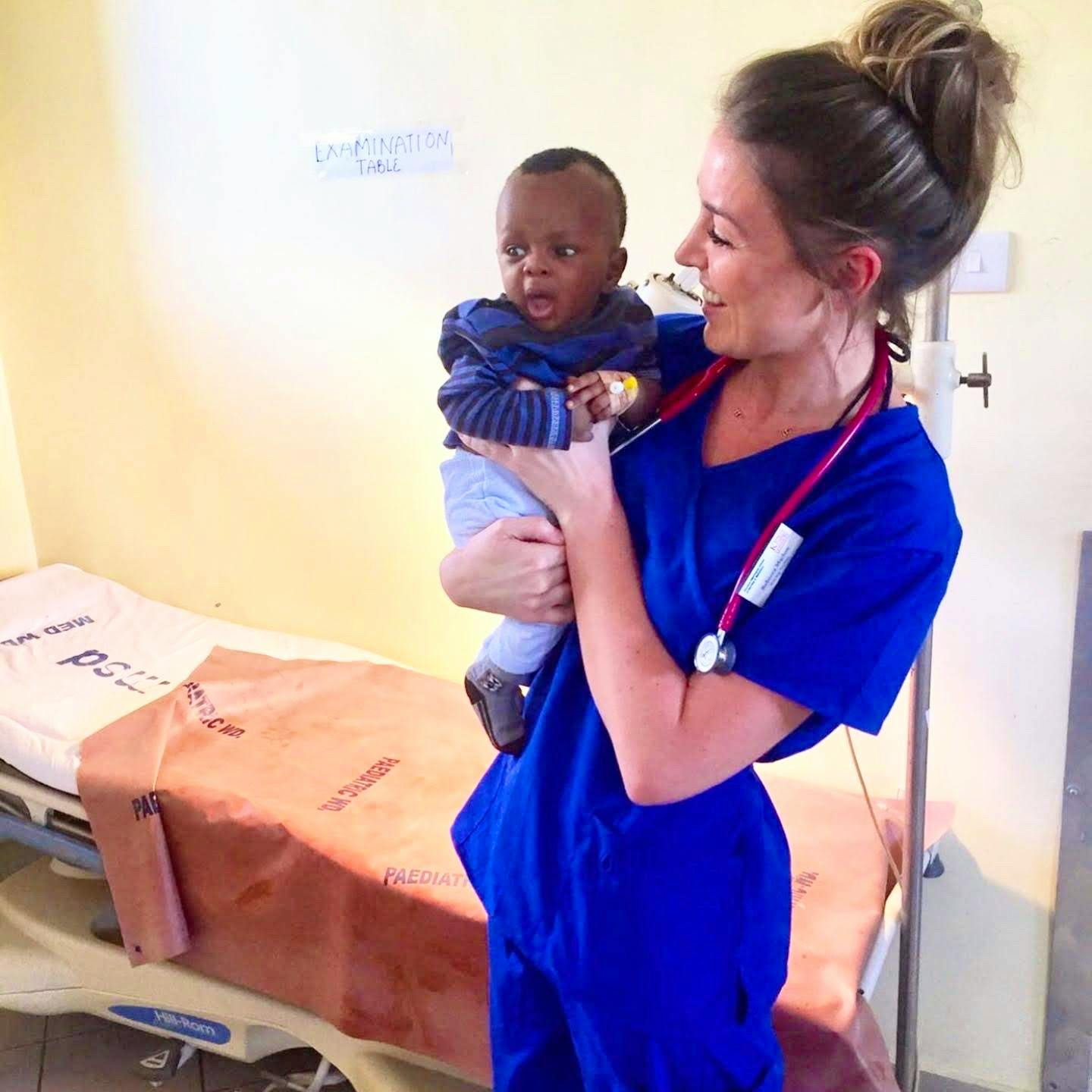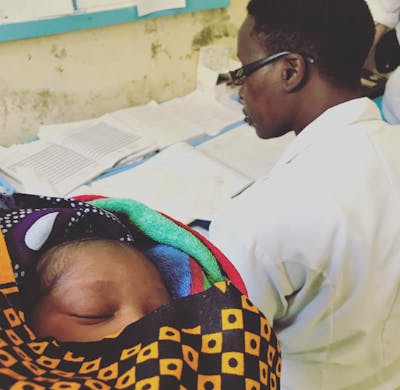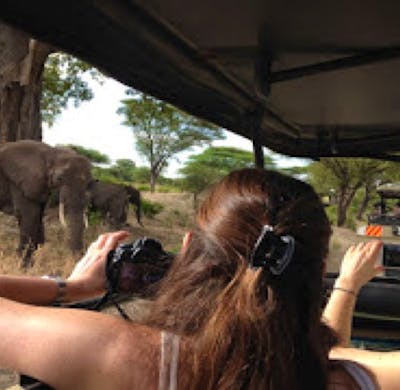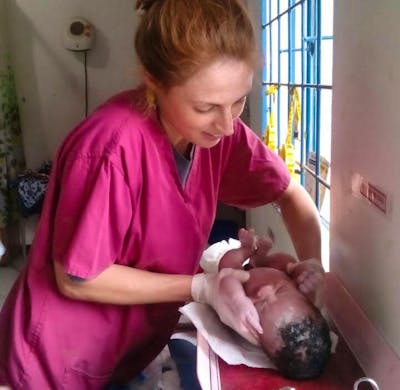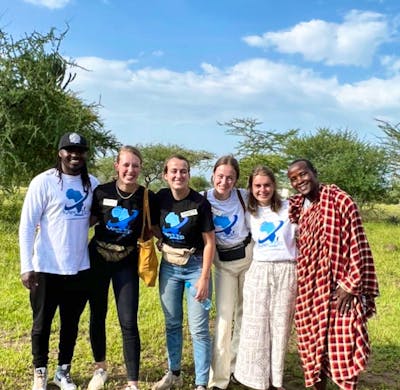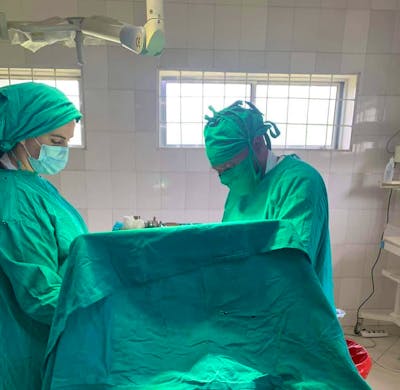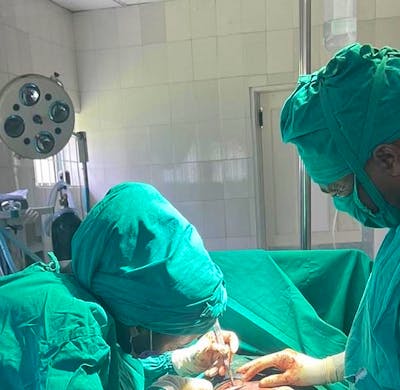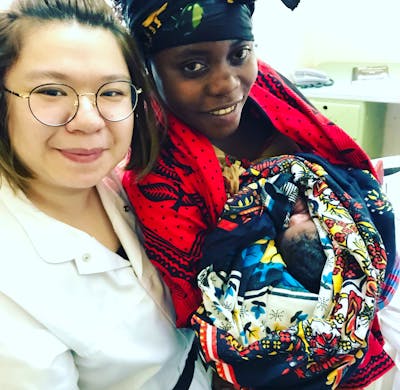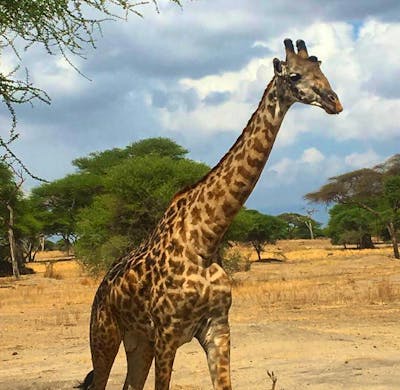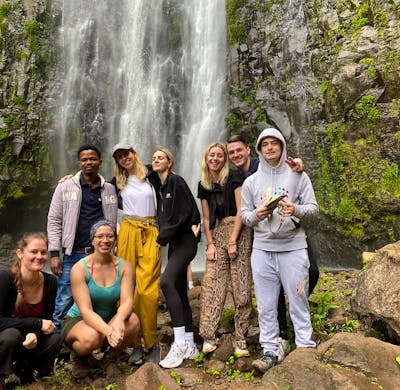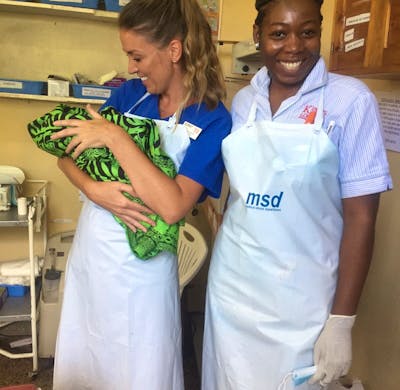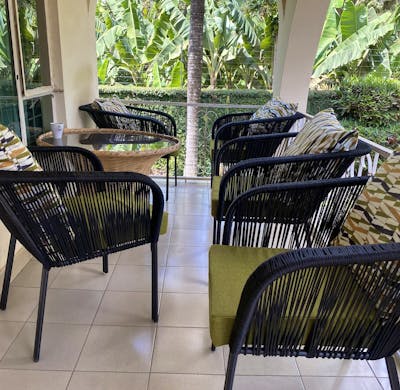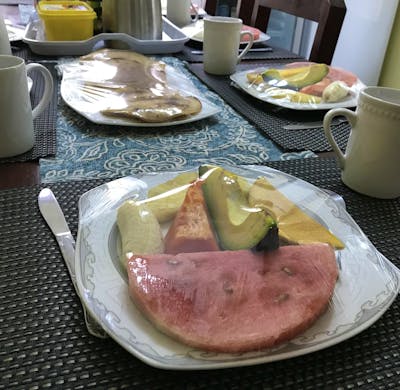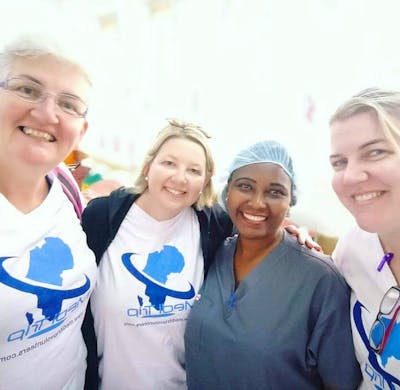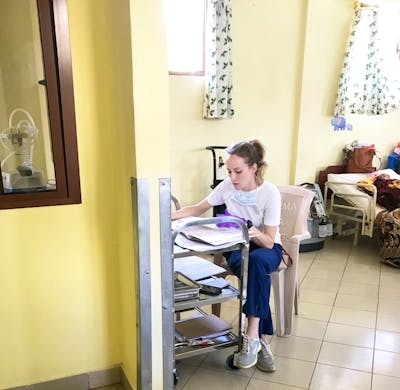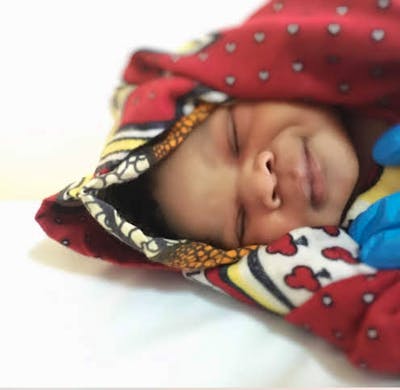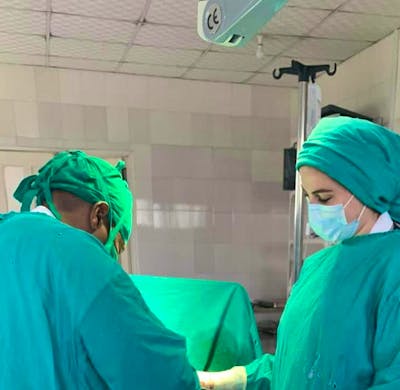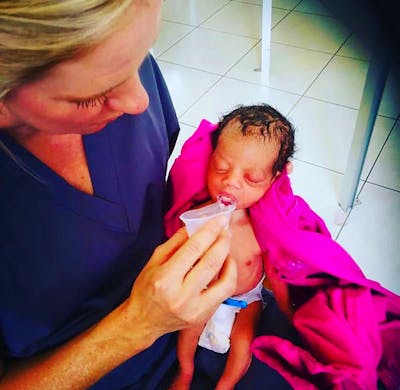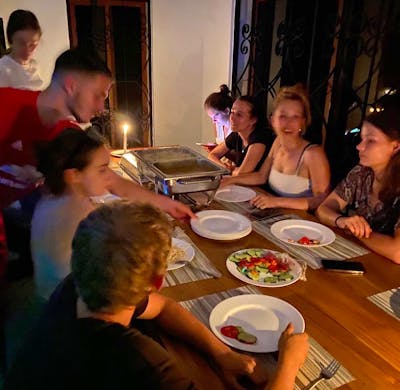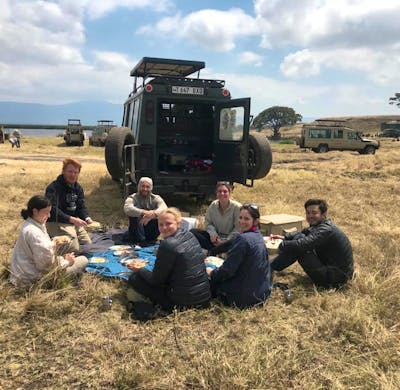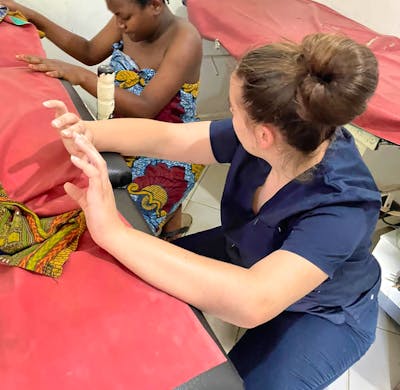"Neonatal deaths are inextricably linked to the health of the mother during pregnancy and to the conditions of delivery and newborn care. Close to 8,000 women die every year during pregnancy and child birth as a result of conditions that could have been prevented or treated. Poor quality of care due to an insufficient number of skilled health workers and lack of basic equipment, as well as long distances from home to health care facilities are major deterrents to facility delivery. Women living in rural areas, those who come from the poorest families and those who are less educated, have the least access to skilled attendance at delivery. Women who start having children in adolescence tend to have more children and shorter spacing between pregnancies – all of which are risk factors for maternal and neonatal mortality. The neonatal mortality rate is highest among mothers under-20 years of age at 45 per 1000 live births compared with 29 per 1000 for mothers aged 20 to 29 years.
Maternal death rates are closely linked with the high fertility rates and low socio-economic status of women, especially the lack of influence that women have over their own health care or over the daily household budget. According to national statistics, every year over 450 women die from pregnancy related complications for every 100,000 live births. Causes of maternal death include obstetric haemorrhage, unsafe abortions, eclampsia, obstructed labour and infections. Low availability of emergency obstetric and new born care services, chronic shortage of skilled health providers together with a weak referral system contribute to the observed high maternal deaths."-UNICEF
Medi Trip PlacementsAt Medi Trip we are distinguished in being able to use our healthcare experience and expertise to pick the most suitable settings for our professional volunteers to experience. When you volunteer with Medi Trip, your volunteer placement would have been chosen specifically to suit your area of interest. Each of our 7 placements facilities are carefully assessed and selected for suitability to our professional volunteers, as well as how much contribution goes into the local health and social welfare.
Medi Trip Placements
Founded and run by a qualified medical professional, Medi Trip is clinically led, medically focused and patient centred. At Medi Trip we are distinguished in being able to use our healthcare experience and expertise to pick the most suitable settings for our professional volunteers to experience. When you volunteer with Medi Trip, your volunteer placement would have been chosen specifically to suit your area of interest. Each of our placements are carefully assessed and selected for suitability to our professional volunteers, as well as how much contribution goes into the local health and social welfare.
So what exactly is medical volunteering?
It takes truly committed people to this abroad! With medical volunteering, you will be volunteering to work with patients or in a healthcare specific area on a voluntary basis. Unlike other types of volunteering, medical volunteering is a difficult, challenging and profound area. Medical volunteers will witness and experience things other volunteers never will or what they never would have at home. This can be a huge challenge as often times volunteers experience situations that can leave them feeling sad, shocked or confused. But for the most part volunteers are often left amazed at the resilience of their patients and at the skill and dedication of their new colleagues. It truly is a hugely moving experience and one most Medi Trippers never forget.
Your Stay
Many Medi Trippers will not have ever visited Africa, much less Tanzania and often don’t really know what to expect. At Medi Trip, we try not to build any particular expectations as every Medi Tripper’s experience and perception is very unique and individual, however none are let down or left anything less than amazed by Tanzania. Tanzanian’s uphold a strong reputation of being incredibly gracious, kind and warm people. You will often find yourself involved in an extended greeting or a long conversation of someone getting to know you or just simply finding out how you are and it is considered very rude not to greet people appropriately. Don’t be shy and enjoy the warm welcomes you will be greeted with walking down the street, socializing or at work!
Although most Tanzanian's speak and understand basic English, language may be a barrier when communicating with your medical colleagues and your patients. It is important to remain open and confident while working as at times you may feel isolated and lost. Remember that you will always have your supervisor at hand to assist you and help guide you along the way. Many people find once they get to know their colleagues and get into the flow of things, this isn't much of an issue, however this is another challenge that you will have to be prepared to overcome.
About Arusha
Tanzania belongs to the East African community, neighboured by Kenya, Burundi, Uganda, Rwanda, Democratic Republic of Congo, Malawi and Mozambique. Arusha is in northern Tanzania; a very unique and vibrant city at the base of Mount Meru, about an hour away from the tallest mountain in Africa Mount Kilimanjaro. The city is surrounded by natural beauty being in close proximity to several national parks including Tarangire, Ngorongoro, Serengeti, Lake Manyara, Olduvai and Arusha National Parks.
Interestingly, Arusha hosted the international criminal tribunal for Rwanda and sits as the de facto East African Community capital. Despite being in a conservative and religious country, Arusha is regarded as more liberal and very open to foreigners. Perhaps due to it's historical significance in the 1961 Arusha Declaration, which gave independence to modern Tanzania from the British Commonwealth. The city is very much a melting pot, multicultural and populated by people from all different backgrounds. The main language spoken is Swahili and a visitor would do well by learning a few of the many greetings.
Where will you stay?
We provide safe, clean and comfortable accommodation, comfortable bedding, excellent breakfast and dinner and housekeeping. This will be a quiet and friendly neighbourhood only 15 minutes from the main hustle and bustle of town. You will have wifi, hot showers, 24 hour gated security, a domestic/cook (who will happily do your laundry for a small fee) and a coordinator who will ensure you settle in quickly and comfortably into your new town. This is a shared home where you will be staying with other volunteers and guests from across the world, so you will never be on your own in your new environment. The house is impeccably clean, well kept, modern and spacious.
How will you get around?
You have the choice of local taxi’s (we have contacts of affordable, trusted drivers) who can get you around town or you can use the famous ‘dala dala’ mini buses that most Tanzanian’s use to travel locally everyday. Some people adapt very fast and choose to walk around, it is safe to do so however like with any new environment we strongly advise you to be aware of pick pockets and thieves. Always be safe and ask your coordinator before going anywhere new to you.
Important VISA & Permit Information
You will be required to pay a for a VISA & Permit for voluntary work assignment. Please enquire for details.
MEDICAL PRACTICE FEE
This is a payment all medical volunteers in Tanzania must make towards the Ministry of Health, Tanzania. This is a stand alone fee all medical volunteers and workers make.
Where do my fees go?
Most of your fees are spent locally. Fees ensure you have above local standard accommodation, that you have a personal coordinator picking you up at the airport, orientating you and you have a coordinator day to day and your program is planned and facilitated specifically for you, to match your skills and get you to provide the very best to those that need you.
Do any fees go directly to the projects?
Yes they do. Although we don't necessarily think that making financial contributions solve the complex issues faced by deprived areas, we do make a charitable donation on your behalf to your project placement. This is not mandatory. We do this as we know how challenging it can be for our partners to host, supervise and very often teach volunteers. We want our partners to know they are valued and respected for their time as best we can.
Is Africa safe for me to travel alone? Do I need to be with other volunteers?
Regardless of whether you're volunteering on a clinical mission, you're still a tourist. Forward planning is key to protecting yourself from risk as you would anywhere in the world. As a group or a solo traveller from abroad, you will attract attention but, you will also have a great support system in your volunteer coordinators, fellow travellers/volunteers and supervisors. It's important to try and be conscientious of your new surroundings and respect and follow local customs as much as possible and insure yourself from any possible risks.
Africa is a large continent with every country varying greatly in local culture, customs, rules and regulations. Research your destination as much as possible and ask as many questions as possible. We would never place you at risk or in harm's way, however it is important you take ownership of your journey and behave responsibly.
Still have more questions? Ask away and get in touch!
PICK UP POINTS:
Kilimanjaro Airport (KIA)
Arusha Airport (ARK)
Arusha Bus station
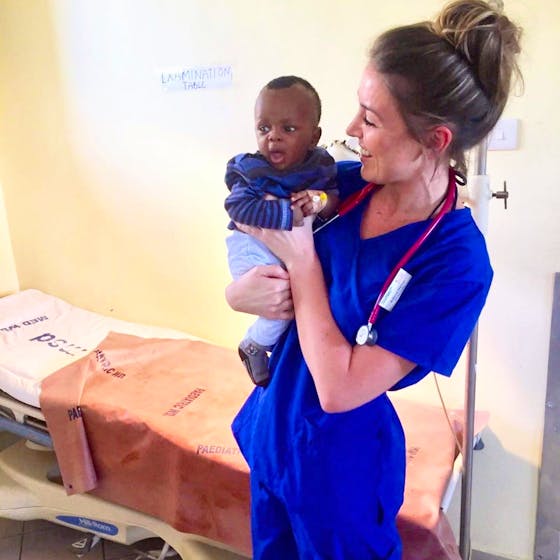
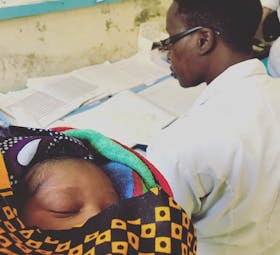
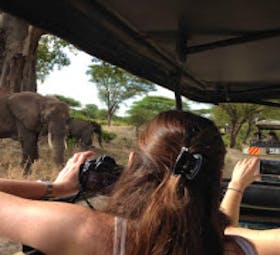
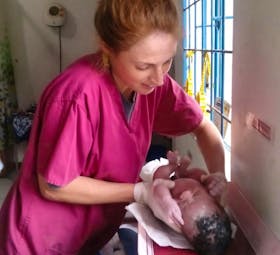
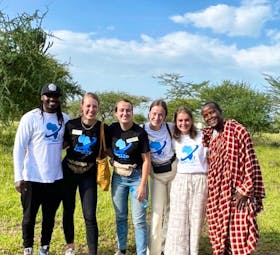
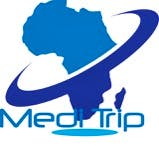
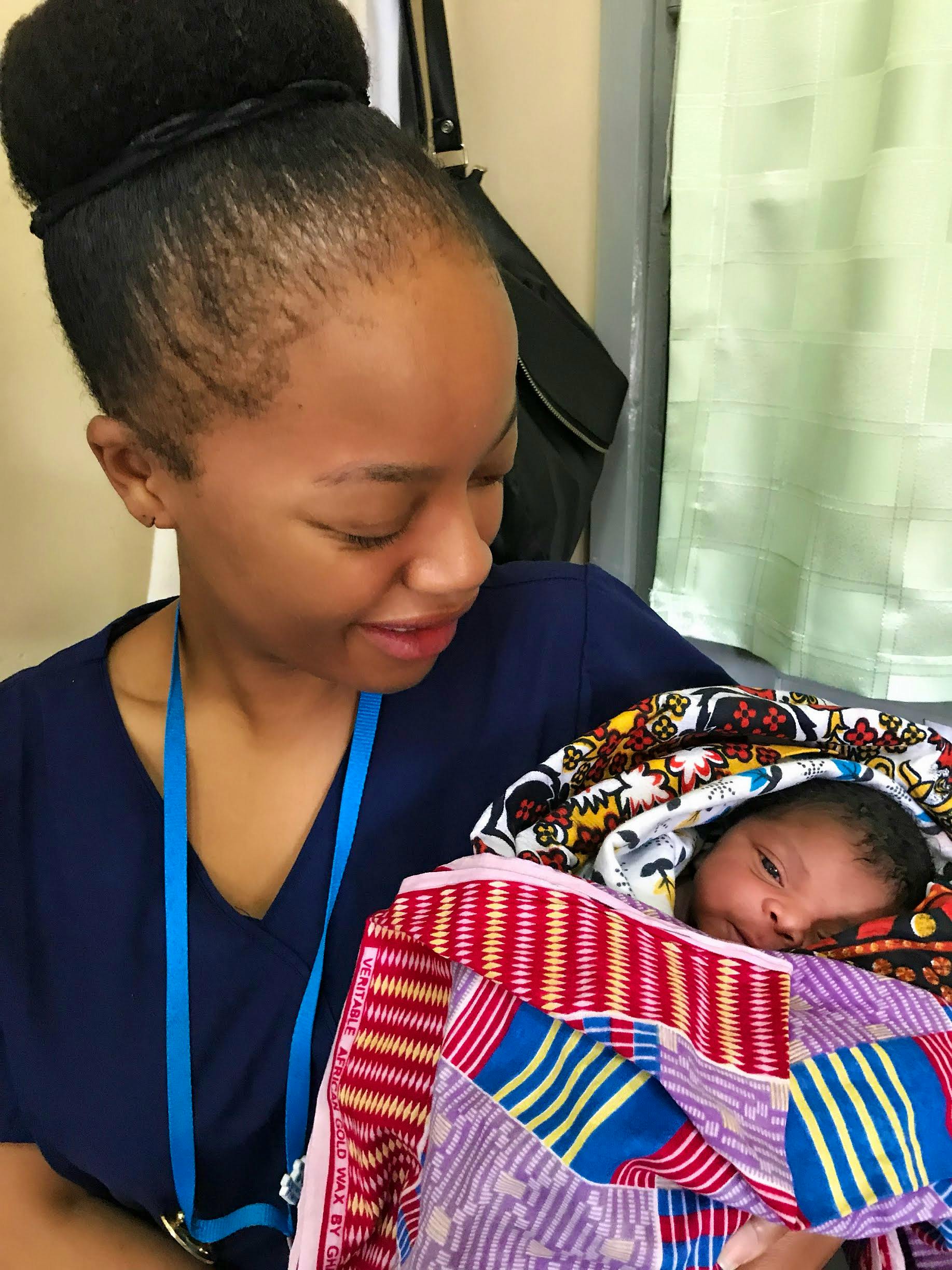
 4.8
4.8

